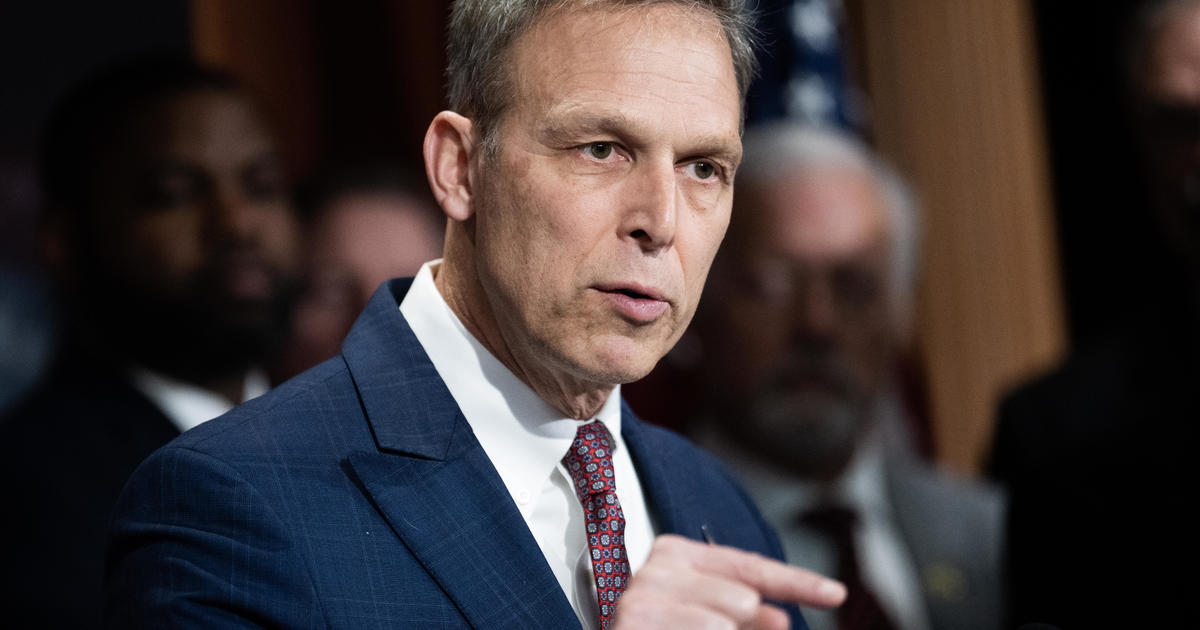Washington — Thousands of communications — including text messages and emails — on the cellphone of Rep. Scott Perry of Pennsylvania can be turned over to federal investigators as part of the special counsel’s 2020 election probe into former President Donald Trump and his allies, the chief judge of Washington, D.C.’s federal court ruled Tuesday, overriding the congressman’s past claims of constitutional protection.
Chief U.S. District Judge John Boasberg wrote late Tuesday that prosecutors will be permitted to access 1,659 of the more than 2,000 records found on Perry’s personal device, which was seized in August 2022.
The data that could now be available to investigators includes communications between Perry and individuals not employed by the federal government “regarding what had occurred during the insurrection at the Capitol on January 6, 2021,” and messages with then-employees of the Trump administration “regarding the procedures that Vice President Pence must follow under the Electoral Count Act,” according to the court order.
Perry and his attorneys had urged federal judges to shield his communications from prosecutors, arguing the Speech and Debate clause of the Constitution protected his cellphone records from being used in an investigation. He contended his work as a federal legislator shielded the contents of his phone from being accessed because they were used as he carried out his congressional duties.
Boasberg’s predecessor as chief judge, Judge Beryl Howell, initially ruled all but 164 of the records on the phone could be turned over to investigators.
The Pennsylvania Republican appealed the decision, and a three-judge panel on the D.C. Circuit Court of Appeals sent the thousands of messages back to the lower courts for review under a stricter interpretation of the protections afforded to Perry under the Speech and Debate clause.
Like Howell, Judge Boasberg reviewed the contents and ultimately ordered all but 396 of the contested records be disclosed to the government.
During the appeals court process, John Rowley, an attorney for Perry, argued the congressman had used his phone in the furtherance of two legislative acts. The first was his votes on certifying the election results on Jan. 6, 2021. The second was for a voting rights bill also known as the For the People Act.
As a result, his attorney claimed the disclosure of his device to investigators should not have happened. He had an “absolute privilege,” Rowley said.
But prosecutors pushed back, urging the court to strike a proper “balance” so as not to grant a protection to Perry that “cloaks members of Congress in very broad, almost absolute immunity.”
Boasberg’s order on Tuesday largely gave prosecutors access to the records at issue, but restricted access to communications that dealt with matters that were “integral” or “essential” to the congressman’s legislative duties, including messages with other members of Congress and staff about “alleged election fraud, whether to certify the electoral votes, and how to assess information relevant to legislation about federal election procedures” after the election.
In June 2022, former White House aide Cassidy Hutchinson testified before the House select committee investigating Jan. 6 that in a Dec. 2020 phone call, Perry expressed support for encouraging people to march to the Capitol on Jan. 6.
In a recent ruling, Chief U.S. District Judge John Boasberg has allowed federal investigators to access thousands of communications, including text messages and emails, on the cellphone of Rep. Scott Perry of Pennsylvania as part of the special counsel’s probe into former President Donald Trump and his allies during the 2020 election. The judge’s decision overrides Perry’s claims of constitutional protection and grants prosecutors access to 1,659 out of 2,000 records found on his personal device, which was seized in August 2022.
The data that could now be available to investigators includes communications between Perry and individuals not employed by the federal government regarding the events of the Capitol insurrection on January 6, 2021, as well as messages with former Trump administration employees regarding the Electoral Count Act. Perry and his attorneys had argued that the Speech and Debate clause of the Constitution protected his cellphone records from being used in the investigation, but Boasberg ruled otherwise.
Previously, Judge Beryl Howell had allowed most of the records on Perry’s phone to be turned over to investigators, except for 164 of them. However, Perry appealed the decision, and a three-judge panel on the D.C. Circuit Court of Appeals sent the messages back to the lower courts for review under a stricter interpretation of the protections afforded to Perry under the Speech and Debate clause. Boasberg reviewed the contents and ultimately ordered all but 396 of the contested records to be disclosed.
Perry’s attorney argued that his phone was used in furtherance of legislative acts, such as voting on certifying the election results and a voting rights bill. However, prosecutors contended that Perry should not be granted broad immunity and urged the court to strike a proper balance. Boasberg’s ruling largely grants prosecutors access to the records but restricts access to communications that are integral or essential to Perry’s legislative duties.
This ruling comes in the context of the ongoing investigation into the events of January 6th and the alleged election fraud surrounding the 2020 election. In June 2022, former White House aide Cassidy Hutchinson testified before the House select committee investigating January 6th that Perry expressed support for encouraging people to march to the Capitol in a December 2020 phone call.



